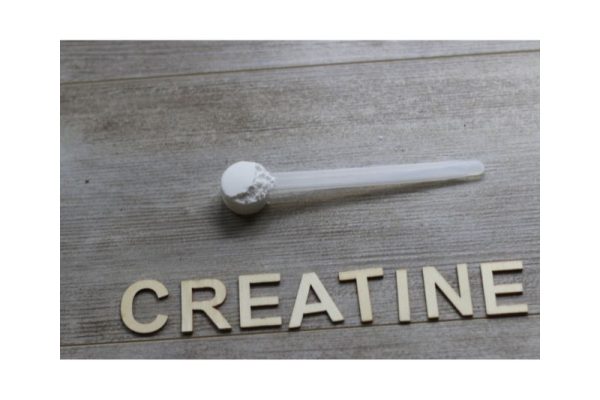Understanding the Concern Around Creatine and Kidney Health
Creatine is one of the most widely researched and effective supplements for enhancing strength, muscle mass, and exercise performance. Yet, despite its proven benefits—especially for men over 50—questions about its safety persist. A major area of concern has been kidney function. So, is creatine safe for your kidneys? Let’s break down the evidence.
Creatine: What It Does in the Body

Creatine is a naturally occurring compound found in red meat and synthesized in the liver, kidneys, and pancreas. It plays a key role in rapidly regenerating adenosine triphosphate (ATP), your body’s primary energy currency, during high-intensity activity.
Supplementing with creatine increases intramuscular creatine phosphate levels, helping older adults maintain muscle mass, combat sarcopenia, and improve performance in resistance training—all crucial for maintaining quality of life after 50 (Candow et al., 2014; Devries & Phillips, 2014).
The Kidney Myth: Where It Started

The concern that creatine may harm kidney function stems largely from early case reports and misinterpretations of standard kidney biomarkers, particularly serum creatinine. This substance is a waste product of creatine metabolism, and high levels in the blood are often interpreted as a sign of kidney dysfunction. However, elevated creatinine in people supplementing with creatine doesn’t necessarily indicate kidney damage—it simply reflects increased intake and breakdown (Poortmans & Francaux, 1999).
Scientific Evidence: Creatine and Kidney Health
What Long-Term Research Shows
Numerous studies have examined creatine’s effect on kidney function using gold-standard markers such as glomerular filtration rate (GFR) and blood urea nitrogen (BUN). These studies consistently show no adverse effects on kidney health in healthy individuals, even with long-term use.
For instance, a 12-week randomized controlled trial in older adults supplementing with creatine and engaging in resistance training found no significant changes in kidney function compared to a placebo group (Gualano et al., 2008). Similarly, Gualano et al. (2010) conducted a two-year study on long-term creatine supplementation in people with type 2 diabetes (who are already at increased risk of kidney issues). The study found no negative effects on kidney function—a powerful finding considering the population studied.
Internal link: Learn more about the benefits of creatine for older men.
Creatine and People with Pre-existing Kidney Issues
While creatine is safe for healthy individuals, people with pre-existing kidney conditions should avoid supplementation unless under medical supervision. A comprehensive review by Klieger et al. (2021) emphasized that while creatine doesn’t cause kidney issues, it may exacerbate them if underlying pathology is present.
Internal link: Find out if creatine is right for you if you have high blood pressure.
Biomarkers: The Creatinine Confusion
A common misconception is that rising serum creatinine levels automatically signal kidney distress. In reality, creatinine is a poor standalone marker of kidney function, especially in those supplementing with creatine. Since creatine breaks down into creatinine, supplementation naturally elevates serum levels—but this doesn’t mean kidney function is impaired.
More accurate assessments include GFR, cystatin C, and creatinine clearance tests. When these are measured, creatine consistently shows a neutral safety profile in healthy adults (Schilling et al., 2001).
Examples from Real-World Studies
One study followed healthy resistance-trained males over 12 weeks of creatine use and found no changes in BUN, GFR, or creatinine clearance (Poortmans & Francaux, 1999). Another examined collegiate athletes supplementing with creatine for up to 21 months. No adverse kidney outcomes were reported (Kreider et al., 2003).

Even in high doses, creatine remains non-toxic. A study by Juhn et al. (2003) gave participants up to 20 grams per day and observed no harmful changes in kidney function.
Internal link: Curious about creatine loading vs. maintenance dosing? Here’s what the research says.
Creatine Safety in Older Adults
Men over 50 face muscle loss, decreased strength, and declining metabolic health. Creatine can help counter these effects. But is it safe for aging kidneys?
In a pivotal study by Candow et al. (2014), older men performed resistance training and consumed creatine for 12 weeks. The results? Improved muscle mass and strength—without any adverse effects on renal markers.
Additionally, a systematic review by Forbes et al. (2021) found that no clinically relevant adverse renal outcomes were observed in older adults supplementing with creatine.
Internal link: Read our full guide on how to take creatine after age 50.
Conclusion: Is Creatine Safe for Your Kidneys?
The Verdict: Safe for Most, With Exceptions
In healthy men over 50, creatine is safe for kidney function, even with long-term use. Extensive research using appropriate kidney function markers supports its safety. While elevated creatinine levels can alarm doctors unfamiliar with supplementation, these increases are non-pathological.
However, if you have kidney disease or are at risk, consult your healthcare provider before starting creatine.
Internal link: Learn which creatine supplement is best for men over 50.
References
- Candow, D. G., Chilibeck, P. D., & Cornish, S. M. (2014). The effects of creatine supplementation and resistance training on muscle strength, muscle mass, and bone mineral density in older adults. Journal of Nutrition and Health Aging, 18(4), 389–396. https://doi.org/10.1007/s12603-014-0002-z
- Devries, M. C., & Phillips, S. M. (2014). Creatine supplementation during resistance training in older adults—a meta-analysis. Medicine & Science in Sports & Exercise, 46(6), 1194–1203. https://doi.org/10.1249/MSS.0000000000000210
- Gualano, B., de Salles Painelli, V., Roschel, H., Lugaresi, R., Dorea, E., Artioli, G. G., … & Lancha Jr, A. H. (2010). Creatine supplementation does not impair kidney function in type 2 diabetic patients: A randomized, double-blind, placebo-controlled clinical trial. European Journal of Applied Physiology, 108(5), 945–955. https://doi.org/10.1007/s00421-009-1300-7
- Gualano, B., Novaes, R. B., Artioli, G. G., Borges, T. O., Zeraik, V. T., Santos, R. V., … & Lancha Jr, A. H. (2008). Effects of creatine supplementation on renal function: A randomized, double-blind, placebo-controlled clinical trial. European Journal of Applied Physiology, 103(1), 33–40. https://doi.org/10.1007/s00421-007-0669-3
- Kreider, R. B., Melton, C., Rasmussen, C., Greenwood, M., Lancaster, S., Cantler, E., … & Almada, A. L. (2003). Long-term creatine supplementation does not significantly affect clinical markers of health in athletes. Molecular and Cellular Biochemistry, 244(1–2), 95–104. https://doi.org/10.1023/A:1022469320296
- Poortmans, J. R., & Francaux, M. (1999). Long-term oral creatine supplementation does not impair renal function in healthy athletes. Medicine and Science in Sports and Exercise, 31(8), 1108–1110. https://doi.org/10.1097/00005768-199908000-00014
- Schilling, B. K., Stone, M. H., Utter, A., Kearney, J. T., Johnson, M., Coglianese, R., … & Keith, R. (2001). Creatine supplementation and health variables: A retrospective study. Medicine and Science in Sports and Exercise, 33(2), 183–188. https://doi.org/10.1097/00005768-200102000-00001
- Klieger, C. A., Draijer, R., van der Zander, K., & Joris, P. J. (2021). Safety of creatine supplementation: A systematic review. Journal of the International Society of Sports Nutrition, 18(1), 1-15. https://doi.org/10.1186/s12970-021-00434-8
- Forbes, S. C., Candow, D. G., Ostojic, S. M., Roberts, M. D., Chilibeck, P. D., & Smith-Ryan, A. E. (2021). Effects of creatine supplementation on renal function: A systematic review and meta-analysis. Journal of the International Society of Sports Nutrition, 18(1), 1–12. https://doi.org/10.1186/s12970-021-00423-x
- Juhn, M. S., O’Kane, J. W., & Vinci, D. M. (2003). Oral creatine supplementation in male collegiate athletes: A survey of dosing habits and side effects. Journal of the American Dietetic Association, 103(3), 329–332. https://doi.org/10.1053/jada.2003.50046

